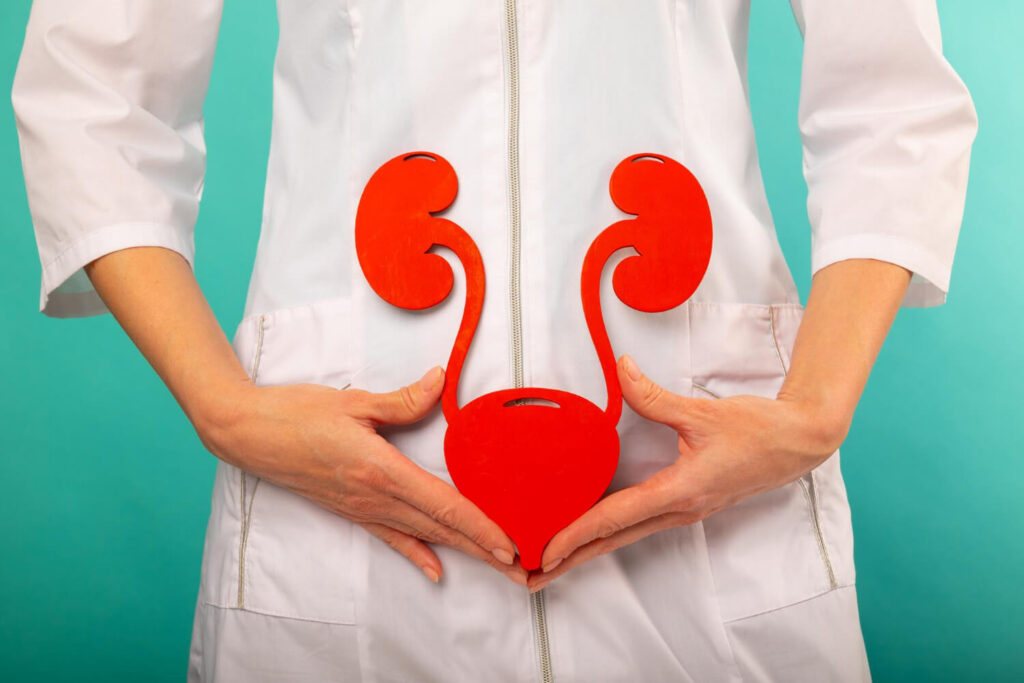Keeping the urinary health is a challenging task especially if several factors may affect its functions. With the daily activities of patients, it’s common for infections to occur. Unfortunately, not many individuals understand the conflict it can bring to one’s health. That’s why learning about the urinary conditions such as uti causes and risk factors can be helpful in managing the condition.
In this blog, we aim to provide a comprehensive guide discussing the valuable aspect for management. By unraveling the mystery surrounding UTI, we hope to empower individuals with the knowledge needed to prevent and manage this common infection effectively.
Understanding Urinary Tract Infection

The urinary system plays a crucial role in eliminating waste products from the body and maintaining the body’s fluid balance. When bacteria enter the urinary tract, they can multiply and cause an infection, leading to various symptoms and discomfort. That’s when uti occurs,
This infection can affect individuals of all ages and genders, A urinary tract infection is an infection that occurs in any part of the urinary system, including the kidneys, bladder, ureters, and urethra.
Common Symptoms and Signs of UTI
As mentioned, anyone is susceptible to develop uti. In that case, it’s best to know the common signs so initial prevention can happen. The symptoms of a UTI can vary depending on the affected area of the urinary tract. Here are some included common signs:
- A persistent urge to urinate
- A burning sensation during urination
- Cloudy or strong-smelling urine
- Pelvic pain
- Frequent urination in small amounts
If left untreated, UTI can result in more severe complications, such as kidney infections. Kidney infections occur when the bacteria from the urinary tract travel up to the kidneys, causing inflammation and potentially damaging the kidneys’ function. Symptoms of a kidney infection may include high fever, back pain, and nausea.
It is important to seek medical attention if you suspect you have a UTI. A healthcare professional can diagnose the infection through a urine sample and prescribe appropriate antibiotics to treat the infection.
How Infections Occur in the Urinary Tract

Infections in the urinary tract typically occur when bacteria, most commonly Escherichia coli (E. coli), enter the urethra and travel up into the bladder and other parts of the urinary system. The urethra, being the opening through which urine is expelled, is in close proximity to the anus, making it susceptible to bacterial colonization.
Once inside the urinary tract, bacteria can attach to the walls of the bladder or urethra and multiply, resulting in infection and subsequent symptoms. Factors that increase the risk of urinary tract infections (UTI) include poor hygiene, sexual activity, menopause, urinary tract abnormalities, and the use of certain types of birth control.
Understanding the route of infection is crucial in identifying preventive measures to reduce the risk of UTI. Maintaining good personal hygiene, drinking plenty of water, urinating frequently, and avoiding irritants such as harsh soaps or bubble baths can help minimize the risk of bacterial colonization and subsequent infection.
Common UTI Causes
UTI is a common health issue that can cause discomfort and inconvenience. They can be caused by various factors, with bacterial and non-bacterial causes playing key roles in their development.
Bacterial UTI Causes
Bacterial infections are the most common culprits. The common culprit, Escherichia coli (E. coli) is the primary bacterium responsible for causing the infection. Interestingly, E. coli is naturally present in the digestive system, where it plays a crucial role in maintaining a healthy gut. However, under certain circumstances, this bacterium can find its way into the urinary tract, leading to infection. Apart from E. coli, other bacterial culprits or UTI causes include Klebsiella, Proteus, and Staphylococcus saprophyticus.
This transmission can happen in various scenarios such as:
- Improper hygiene practices or wiping from front to back after using the toilet
- sexual intercourse
- urinary tract obstructions or structural defects,
Non-bacterial UTI Causes
While bacterial infections are the one of the common UTI causes, it is important to note that non-bacterial factors can also contribute to the development of urinary tract infections. Viral infections, such as herpes simplex virus and cytomegalovirus, can lead to UTI in certain cases.
These viral infections can affect the urinary tract, causing inflammation and increasing the risk of bacterial invasion. Additionally, certain fungal infections, such as Candida, can also cause UTI, particularly in individuals with weakened immune systems or those who have recently taken antibiotics.
Risk Factors and Triggers for UTI
While anyone can develop a UTI, there are several risk factors and triggers that increase the likelihood of experiencing this uncomfortable infection. By identifying these factors and making appropriate lifestyle modifications, individuals can take proactive steps to reduce their risk of UTIs.
Gender-Specific Risk Factors
Women, in particular, are more prone to UTI due to their anatomical differences. The female urethra is shorter than the male urethra, making it easier for bacteria to travel up into the bladder. This shorter distance allows bacteria to reach the bladder more quickly, increasing the risk of infection. Additionally, hormonal changes during pregnancy and menopause can further contribute to the susceptibility of developing UTI in women. These hormonal fluctuations can alter the pH balance of the urinary tract, creating an environment that is more favorable for bacterial growth.
While men are less likely to experience UTI compared to women, they are not entirely immune to this condition. Men with bladder or prostate issues, such as an enlarged prostate or urinary retention, may be at a higher risk of developing UTI. These underlying conditions can create an environment that is conducive to bacterial growth and infection.
Lifestyle and Behavioral Triggers
In addition to gender-specific risk factors, various lifestyle factors and behaviors can contribute to the occurrence of UTI. One of the most common triggers is inadequate hydration. When the body is not properly hydrated, urine becomes concentrated, allowing bacteria to multiply more easily. It is essential to drink an adequate amount of water throughout the day to maintain proper urinary tract health.
Another lifestyle trigger is holding in urine for extended periods. When urine is held in the bladder for too long, it provides a breeding ground for bacteria. It is important to empty the bladder regularly to flush out any potential pathogens and maintain a healthy urinary tract.
Improper wiping techniques after using the toilet can also increase the risk of UTIs. It is crucial to wipe from front to back to prevent the spread of bacteria from the anal area to the urethra. This simple hygiene practice can significantly reduce the chances of developing a UTI.
Frequent or vigorous sexual activity can also be a trigger for UTI. During sexual intercourse, bacteria from the genital area can enter the urethra, leading to an infection. It is important to maintain good hygiene practices before and after sexual activity to minimize the risk of UTI.
Additionally, the use of certain contraceptive methods, such as diaphragms, can contribute to UTI. These devices can potentially trap bacteria and prevent proper urine flow, creating an environment that is favorable for bacterial growth. It is advisable to discuss alternative contraceptive options with a healthcare provider if recurrent UTI are a concern.
Prevention and Management of UTI

While the causes and triggers of UTI may seem daunting, there are preventative measures and treatments available to mitigate their impact.
Hygiene Practices to Prevent UTI
Implementing proper hygiene practices is crucial in minimizing the risk of UTI. This includes wiping from front to back after using the restroom, urinating before and after sexual intercourse, staying well-hydrated, and avoiding irritating substances, such as harsh soaps or feminine hygiene sprays.
Medical Interventions and Treatments
In cases of recurring or severe UTI, medical interventions may be necessary. This can include the prescription of antibiotics, which effectively target and eliminate bacteria causing the infection. Additionally, healthcare professionals may recommend lifestyle modifications and preventive measures tailored to an individual’s specific circumstances.
Conclusion
Whether through practicing proper hygiene or making lifestyle modifications, taking proactive measures can significantly reduce the likelihood of UTI and promote overall urinary health. Remember, knowledge is power when it comes to unveiling the causes and solutions to urinary tract infections.
Schedule an online consultation with a urologist to gain more knowledge on how to properly manage UTI. Doing so will help you get a hold of your health, leading to a proper management of the urinary tract.



